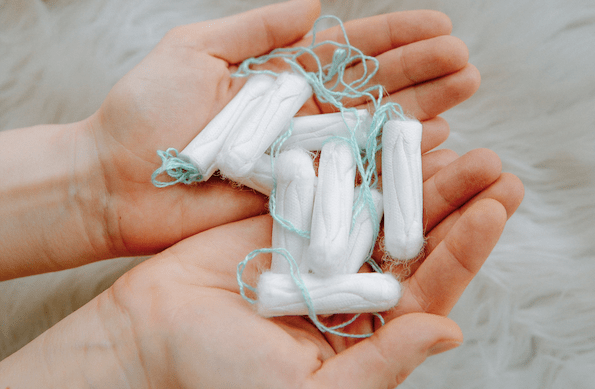A new period campaign is telling ‘the whole bloody truth’ about trans people who menstruate

Trans men and non-binary people have periods too (Pexels/Polina Zimmerman)
Menstruating men and non-binary people are being recognised in a “long overdue” period-care campaign that highlights trans and intersex people as well as cis women.
The new campaign run by the organic menstrual brand Callaly is telling “the whole bloody truth” about periods, noting research that shows two-thirds of people don’t feel their period experience is shown in media or advertising.
As they urge the industry to change the narrative on periods, they’re giving voice to those who have previously been ignored by telling the stories of 13 different people who menstruate.
“It’s time we recognised that not only cisgender women have periods,” Kate Huang, CMO of Callaly told Forbes. “One of our first customers was a man – and, as a brand, we take our responsibility seriously in promoting this message.
“We want every person with a period to feel seen, heard, and represented, and will continue to innovate with products that serve all people with periods.”
Their campaign highlights people with a diverse range of genders, ethnicities and disabilities, all of whom had previously felt isolated and unrepresented by the media’s one-dimensional portrayal of periods.
Trans author Vic Jouvert shared his story. “I was always told that I was a girl, and then that I was to become a woman. So my period was just physical evidence of my biology not matching with who I always knew I was,” he said.
“In this way, my period has always been a reminder of what I’m not. It was like my body telling me I had to suck it up and accept the inevitability of my womanhood and thus the social norms for that body.”
He says the language of period advertising reinforces ideas of shame around menstruation and make him feel “unseen” and “invisible” in the conversation.
“Representation is everything, and it can change the way you feel about your experience,” he added. “Seeing someone who is masculine who menstruates allows other people to know that their period experience is valid as well.”
Callaly’s move towards “period honesty” means wading into a controversial debate that has seen brands like Always and The Body Shop threatened with boycotts simply for suggesting a change in the way we talk about menstruation.
But Huang is confident that a more diverse approach to period care is more than just symbolic: it’s the right thing to do.
“It’s OK that you might not have heard of the term ‘people who menstruate’ before. But now that you have, please know the power that words can have, and take care to be more inclusive in the future,” she said.
“This isn’t a box-ticking exercise, it’s about understanding each other so we can build a more compassionate, cohesive society.”

